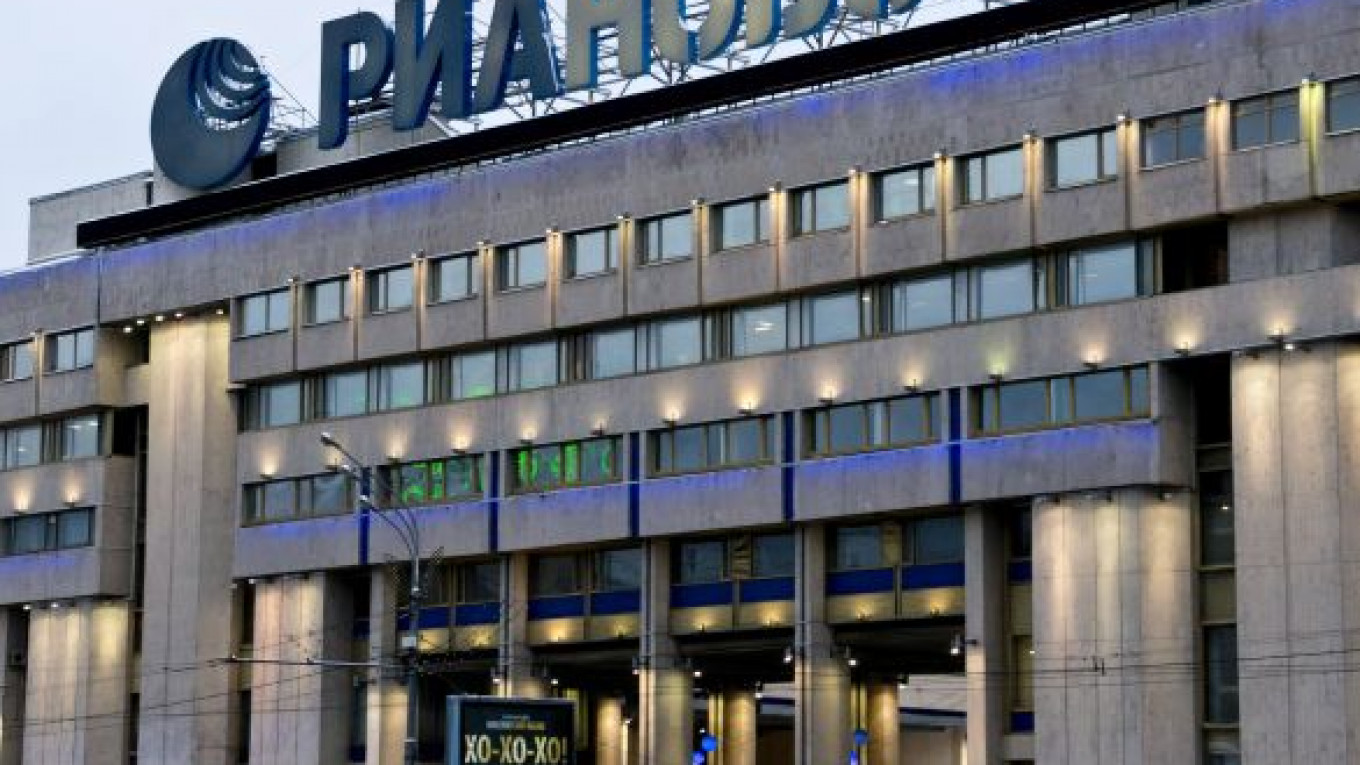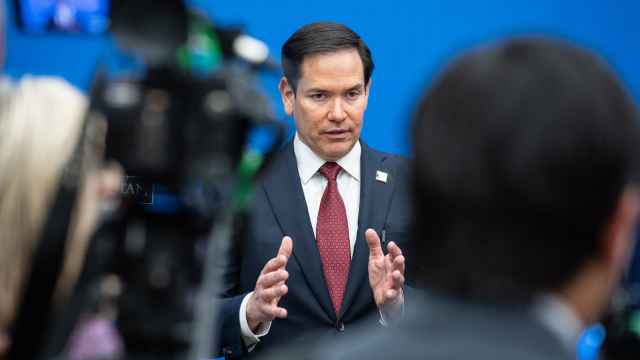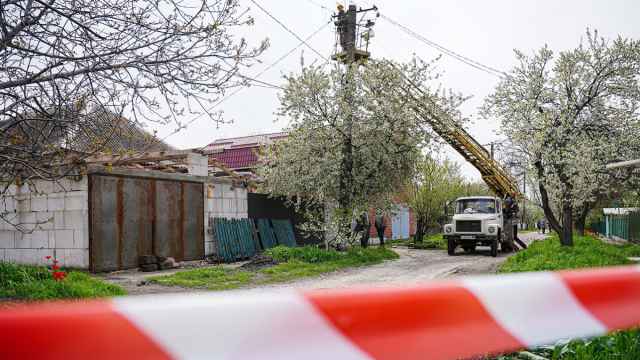Dmitry Kiselyov, the ultraconservative television host who was appointed Monday to head a new global news service on the base of RIA Novosti, said Tuesday that parts of the news agency would be preserved and that its staff would remain "in demand."
Kiselyov also said he would meet soon with the outgoing editor-in-chief of RIA Novosti, Svetlana Mironyuk, to discuss the organization's shutdown and subsequent transformation into the new agency, Rossia Segodnya.
The Kremlin said the "liquidation" of RIA Novosti and the creation of a new agency, decreed by President Vladimir Putin on Monday, would reduce spending and increase the effectiveness of state media. Critics of the move say it is meant to strengthen the pro-Kremlin slant in the country's already heavily controlled media sector.
"I will not comment on why saving money entails the liquidation of the best media organization in the country, which was created through state funding," said RIA Novosti editor-in-chief Svetlana Mironyuk, who has headed the news agency for a decade, in a speech to employees Monday. A video of the speech, given from a stage in a large auditorium, was posted online.
Kiselyov, who is notorious for his chauvinistic remarks, praised the mandate of the new organization he was appointed to lead.
"Restoring a fair attitude toward Russia, an important country in the world that has good intentions, is the mission of the new organization," Kiselyov said Monday evening in an interview on state-owned Russia 24 television.
Kiselyov also told journalists on Tuesday that RIA Novosti's "positive results, developments and modern technologies" should be preserved in the new organization, and said the agency's staff would remain "in demand," Interfax reported. He did not elaborate.
Mironyuk tried to reassure her employees, announcing that none of them would leave the agency without financial compensation.
"I apologize to those I was not able to protect," Mironyuk said, holding back tears while addressing her staff. "I am truly very hurt."
She also said the elimination of the RIA Novosti brand was a waste of the $1 billion investment that the Russian government had made in the agency over the past 10 years.
"We were not treated as we should have been," she said. "This is unfair. But we are better than that."
Despite Mironyuk's disapproval of the situation, she conceded that Putin's decision could not be contested.
"This is a presidential decree," she said. "We do not discuss it. We just obey and execute."
Alexey Pushkov, a deputy of the ruling United Russia party and head of the State Duma's International Affairs Committee, shared the Kremlin's view on the necessity to liquidate RIA Novosti for the sake of "effectiveness."
"There are already many information structures in Russia," Pushkov said by phone Tuesday. "It wasn't right. For the system to be effective, it needs to be unitary."
Dmitry Gudkov, a Duma deputy formerly of the Just Russia opposition party and a leader of protests against Putin's re-election last year, said Kiselyov's nomination as the head of Rossia Segodnya transforms a governmental news service into a "public relations, propaganda tool" for the Russian government.
"Countries build their reputations on deeds," Gudkov said. "If our country keeps adopting pointless homophobic legislation, imprisoning people for political purposes and ignoring vulnerable members of the population, no PR campaign can save us."
RIA Novosti will likely be dismantled over the next three months. Some branches of the agency could be sold to other Russian media outlets, such as state news agency Itar-Tass and independent holding RBC.
Contact the author at g.tetraultfarber@imedia.ru
A Message from The Moscow Times:
Dear readers,
We are facing unprecedented challenges. Russia's Prosecutor General's Office has designated The Moscow Times as an "undesirable" organization, criminalizing our work and putting our staff at risk of prosecution. This follows our earlier unjust labeling as a "foreign agent."
These actions are direct attempts to silence independent journalism in Russia. The authorities claim our work "discredits the decisions of the Russian leadership." We see things differently: we strive to provide accurate, unbiased reporting on Russia.
We, the journalists of The Moscow Times, refuse to be silenced. But to continue our work, we need your help.
Your support, no matter how small, makes a world of difference. If you can, please support us monthly starting from just $2. It's quick to set up, and every contribution makes a significant impact.
By supporting The Moscow Times, you're defending open, independent journalism in the face of repression. Thank you for standing with us.
Remind me later.






